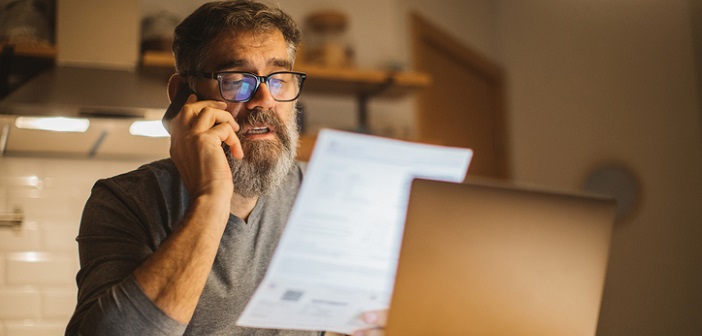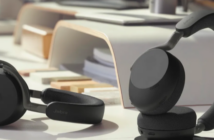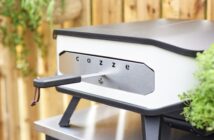Well, it’s that time of year again and it’s time to set up those meetings with the accountant. This Q&A with H&R Block director of tax communications Mark Chapman runs through some useful tips to keep in mind.
For some workers, the list of taxable items can be funny and interesting including; sex toys for sex workers, hand sanitiser for medical staff, garden gnomes for those with a rental property and more. Even if you’re not in one of those categories, it’s always great to know what can and cannot be claimed.
What are some tips you give people when preparing for their meeting with the accountant?
There’s a reason why nearly 74% of people use a tax agent to help them do their taxes. Tax is complicated and stressful and if you do it yourself, you’re likely to make a mistake. You might claim something you weren’t entitled to and find yourself audited by the ATO or you might miss out on a deduction you could have claimed but didn’t realise was available to you; the result is a lower refund than you could have got.
Using a tax agent like H&R Block takes away the stress and opens up a whole world of expertise to guide you through the process, so you can be sure you’re claiming everything you’re entitled to. You wouldn’t generally choose to treat a medical condition yourself, you’d see a doctor so why should tax be different? Get expert advice and the fee will generally be more than covered by the bigger refund and the peace of mind.
Here are some tips for using a tax agent:
- Keep all your paperwork. Remember, no proof = no claim. Having your paperwork properly organised will make the tax return process quicker, easier and cheaper.
- Make sure all your income data is correctly included, such as wages, bank interest, etc. Remember, if you don’t tell your tax agent about it, they can’t include it.
- Make sure all your details are correct, including your name and bank account details. Mistakes will delay the processing of your return
What are some deductions people might not know they can claim?
- Face masks, hand sanitiser and antibacterial spray
COVID-19 has changed the way we work, not least in relation to the need to socially distance and maintain good hygiene practices. If you work in an occupation where it simply isn’t possible to maintain social distancing, or you need to have physical contact with clients, you may be able to claim personal protection items such as face masks, hand sanitiser and antibacterial spray.
People who can claim include teachers, hospitality staff, retail staff, medical staff (including ancillary workers such as receptionists and cleaners), hairdressers and beauty therapists.
- A handbag or briefcase
If you use a bag for work purposes – for example, to carry an iPad, phone, calculator, stationery or anything else you need for work, you can claim a deduction for the cost of the bag. Be careful though; the handbag needs to be fit for work purposes and actually be used for work purposes. You might struggle to claim that new Gucci bag but a more modest bag – genuinely used only for work purposes – should be claimable. For men, a work briefcase, satchel or backpack should also be claimable.
- Sunscreen, sunglasses and hats
If you work outside for long periods of the day, you may be entitled to claim the cost of sunscreen because of the dangers to your skin from prolonged exposure to the sun. Gardeners, farmers, building and construction workers and outdoor recreation staff, such as those who run outdoor fitness classes are amongst those who could potentially claim sunscreen. Sunglasses and hats are also claimable by the same groups.
- An apartment in another city
If you own an investment property, you can claim deductions against the rental income but did you know that in some cases you can claim deductions against a place you live in yourself? Under recent guidelines issued by the ATO, if you’re required to work away from home by your employer, your assignment in the other place is only temporary (so you haven’t actually relocated) and you choose to rent or buy an apartment in the other work location rather than relying on hotels or motels, you can claim a deduction for the work-related costs relating to the apartment, including either rent or interest on the mortgage, depending on whether you rent or buy.
- Cost of conferences, even if you stay on afterwards for a break
If you attend a conference interstate that is related to your current job and paid for personally, the costs associated with attending the conference should be deductible. That could include airfares, hotels and meals. Better still, you could even stay on afterwards for a short break provided the additional time is merely incidental to the time spent at the conference or you couldn’t catch an earlier flight home.
With more people working from home or in a hybrid setting, what should they know about tax time?
If you work from home, you can claim a tax deduction for the work-related proportions of household costs such as:
- Heating, cooling and lighting bills
- Costs of cleaning your home working area (including cleaning products or payment for a domestic cleaner if required)
- Depreciation of home office furniture and fittings
- Depreciation of office equipment and computers
- Costs of repairing home office equipment, furniture and furnishings
- Small capital items such as furniture and computer equipment costing less than $300 can be written off in full immediately (they don’t need to be depreciated)
- Computer consumables (like printer ink) and stationery
- Phone (mobile and/or landline) and internet expenses
Ideally, you should have a specific room set aside as a home office. If you are using a room with a dual purpose (e.g. dining room), or a room shared with others (e.g. lounge room) you can only claim the expenses for the hours you had exclusive use of the area.
The ATO has introduced a temporary “shortcut method” of calculating additional running expenses allowing those working from home to claim a rate of 80 cents per work hour during the coronavirus crisis. This will apply from right through this tax year to 30 June 2021. The ATO may extend this period.
You will need to keep a record of the number of hours you have worked from home as a result of COVID-19.
If you use the 80 cents per hour method, you can make no other claims in relation to working from home. So, items like mobile phone and internet usage are included in the 80 cent rate.
Alternatively, you can claim the ATO’s existing flat-rate allowance for working from home of 52 cents per hour. This covers the extra costs of heating, cooling, lighting and the decline in value of furniture. All you need to do to claim this is to keep a diary – note the time you start work each day, the time you finish work each day and any breaks. You can then claim 52 cents per hour for each working hour.
In addition, (and this is what makes this rate different to the temporary 80 cent rate) you can also make separate claims for the work-related proportion of items such as your home internet, mobile phone costs and other expenses that directly relate to your work such as stationery and printer ink. These additional costs often make this a preferred method since the size of the claim is often much larger than using the 80 cent rate.
A further option is to claim the actual costs you’ve incurred. You’ll need to keep a diary of your work from home hours (for a typical 12 week period) and you’ll also need to work out the amount of your home (by floor area) that you’re using as your workspace. From this, you can then work out the work-related proportion of your household expenses and apply this percentage to the actual amount you spend on electricity, gas, water, phone and internet, etc. You’ll also need to keep all the original bills to prove your claim.
This generally produces a bigger claim than either of the flat-rate methods but the amount of paperwork and calculation involved is much greater.
Your tax agent will be able to give you advice on which method to use.
What are some of the more peculiar items you’ve seen people claim (successfully or unsuccessfully) during tax time?
A well-known fashion model had undertaken various cosmetic procedures to maintain her appearance. She argued that the work done was to maintain her career past the point that it would otherwise have faded out if she hadn’t had the work done. As such, she argued there was a clear link between the cosmetic surgery and deriving her income. It’s an argument that seems superficially compelling but it’s not one the ATO would agree with; so far as they are concerned, medical procedures are rarely if ever tax-deductible, no matter what the reason.
In a similar vein, taxpayers in the adult entertainment industry can claim all manner of interesting deductions. Taxpayers in the US – but not here – have even claimed that breast enhancements could be tax-deductible as a “tool of the trade” (not an argument that would find favour here, following the same logic as the cosmetic surgery for the model, above). So, it’s a controversial claim even for adult performers but the lady – with no known connection to the adult industry – who tried to claim that her enhancements were necessary for work was facing even more of an uphill battle. We didn’t allow the claim.
Breast enhancements might be a tax no-no but adult performers can look at successfully making claims for items as diverse as dance lessons, hair care, oils, lingerie, costumes and “toys”.
Another profession that can generate some very strange tax deductions is a circus performer. Not many people can successfully make a claim for a clown costume, but one client who did was a professional clown. The whole costume was allowable, including the red nose, as a work-related clothing claim. Similarly, the professional sword swallower was able to claim the ceremonial swords used in his act.
How can people get their taxes done? Last year was on the phone for me, is that still an option?
If you’re using an agent, you can make an appointment to see your agent face to face. Book with H&R Block here: Lodge Tax Returns | H&R Block Australia (hrblock.com.au). You can also book a phone appointment using the same link. The process takes about half an hour, depending on how complex your return is. You can also complete a return online: Tax Return & Tax Accountants in Australia | H&R Block Australia (hrblock.com.au)





